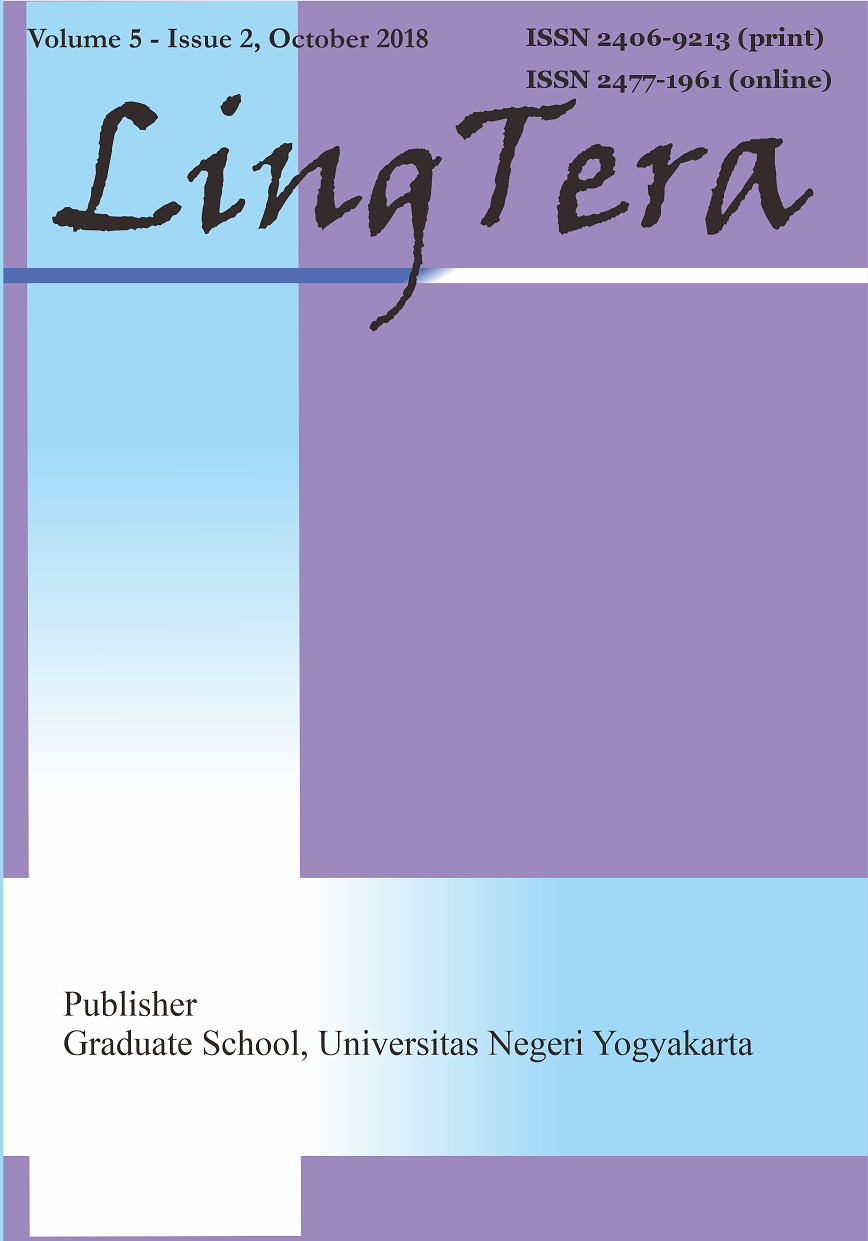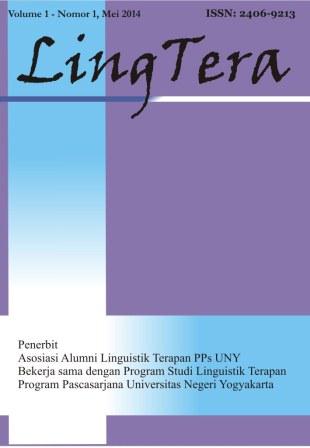Developing autonomous listening learning materials for university students TOEFL preparation
DOI:
https://doi.org/10.21831/lt.v5i2.10192Keywords:
Listening, autonomous learning, TOEFL, MaterialsAbstract
This research was aimed at developing autonomous listening learning materials for TOEFL preparation for learners at independent language learning center (ILLC) of the language development center at YSU to help them improve their listening skills. This research was a Research and Development study which refers to development model proposed by Tomlinson (1998). The subjects of this research were 30 learners who are members of ILLC. Data were collected using questionnaires and open-ended interviews. The data were analyzed qualitatively and quantitatively. The results of the research reveal that the appropriate listening learning materials for TOEFL preparation consist of printed materials and audio recording containing the listening skills to find the main topic, to find the main idea, to find the implied meaning, to make prediction, to determine the meaning of idiomatic expressions, to find details information, to draw conclusions, to find suggestions, and to make inferences. The learners' role is as active listeners and to answer multiple choice questions, the learning activities include many listening practices, clear instructions, reflection and answer keys. Units are designed of Unit number/title, learning objectives, hints/tips, main activities and reflection. The appropriate tasks consist of warm-up, matching expressions to the pictures, matching words to their meanings, guessing, anticipating the topics and or questions, listening practices, note-taking.
References
Choirunnisa, S., & Haryadi, H. (2015). Pengembangan media pembelajaran bahasa Inggris berbasis komputer untuk keterampilan menyimak bagi siswa SMA kelas X. LingTera, 2(2), 208 - 221. doi:https://doi.org/10.21831/lt.v2i2.7382
Cookson, S., Marchand, T., & Rowlett, B. (2011). TOEFL skills, study abroad English and learner autonomy in the flight operations programme. In Search of a Learner-Centered Education, 11, 189-205.
Gall, M, D. Gall, J. P-& Borg, W. R. (2003). Educational research: An introduction. (7th .Ed) New York: Pearson Education.Inch.
Gardner, D. (2011). Fostering autonomy in language learning. Zirve University. Hongkong.
Huntley, H. (1997). Longman introductory course for the TOEFL Test & Longman preparation course for the TOEFL Test. Available from: http://www.zait.uni-bremen.de/wwwgast/test_ej/ej09/r6.html
Jannejad, M. Shokouhi, H. & Haghighi, S. B. (2012). The effect of controlled language processing on listening comprehension and recall. Journal of English Teaching, 5(9), 155-165.
Richards, J.C. (2008). Teaching listening and speaking, from theory to practice. New York. Cambridge University press.
Schwienhorst, K. (2003). Learner autonomy and tandem learning: Putting principles into practice in synchronous and asynchronous telecommunications environments. Computer Assisted Language Learning, 16(5), 427–443. https://doi.org/10.1076/call.16.5.427.29484
Sharpe, P.J. (2004). Barron's how to prepare for the TOEFL test of English as a foreign language. (11th ed). Barrons Educational Series Inc.
Tomlinson, B. (2011). Materials development in language teaching. Cambridge University Press
Downloads
Published
How to Cite
Issue
Section
Citation Check
License
LingTera allows readers to read, download, copy, distribute, print, search, or link to its articles' full texts and allows readers to use them for any other lawful purpose. The journal allows the author(s) to hold the copyright without restrictions. Finally, the journal allows the author(s) to retain publishing rights without restrictions.
- Authors are allowed to archive their submitted articles in an open-access repository.
- Authors are allowed to archive the final published article in an open-access repository with an acknowledgment of its initial publication in this journal.

Psychology, Evaluation, and Technology in Educational Research is licensed under a Creative Commons Attribution-ShareAlike 4.0 International License.
Based on a work at https://petier.org/index.php/PETIER.










